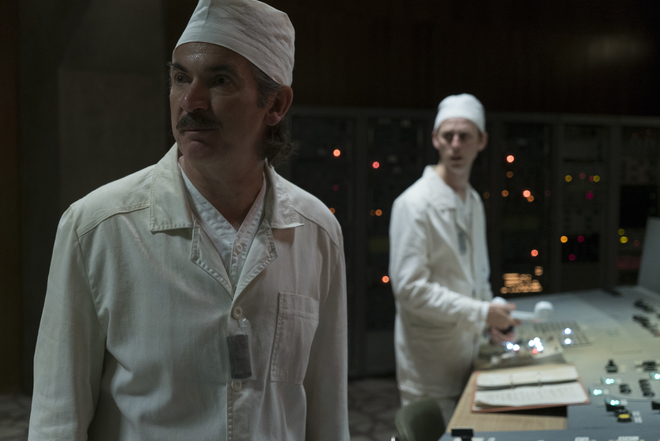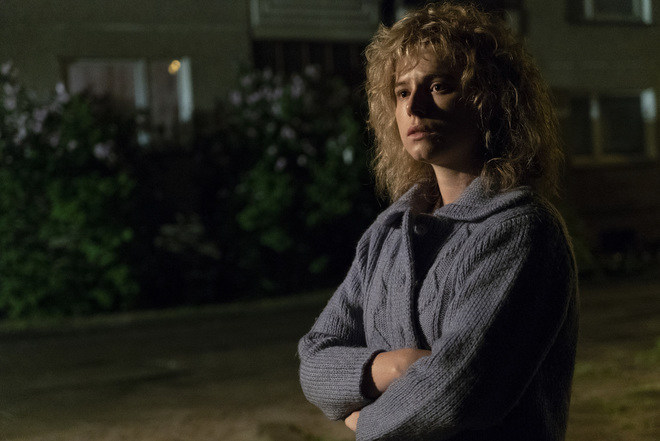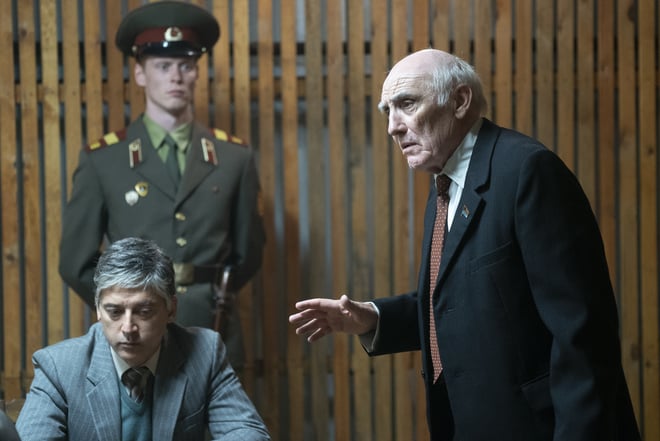‘Chernobyl’: The Shocking Details the Show Left Out
HBO’s limited series Chernobyl took the world by storm during the summer of 2019. The series, based on the real-life disaster that took place in 1986, managed to become the highest-rated television show on IMDb and managed to outrank HBO’s groundbreaking hit series Game of Thrones. Chernobyl also earned a spot among the top five most-nominated shows at the 71st Primetime Emmy Awards, receiving 19 nominations and winning three, including the award for Best Limited Series of 2019. And yes, the hype is completely warranted.
HBO’s Chernobyl tells the story of the events leading up to the disaster and the brave men and women who fought and even sacrificed their lives to save Europe. Like many television shows that revolve around true stories, some things aren’t entirely accurate. Chernobyl is no exception. Keep reading to learn about the shocking details that HBO’s Chernobyl didn’t reveal in the show.
*This article contains spoilers for HBO’s Chernobyl.

Deaths from acute radiation poisoning were slower
One of the most disturbing scenes of Chernobyl is the graphically explicit death of real-life firefighter Vasily Ignatenko. Ignatenko was one of the many firefighters who responded to the fires from the explosion at the Chernobyl Nuclear Power Plant. Like many of the firefighters, Ignatenko suffered from acute radiation poisoning after the fact, having been too close to the reactor without the proper gear, and lost his life. In the show, his death is shown in very gruesome detail except for one disturbing detail.
In Chernobyl, Vasily Ignatenko’s death seems to happen very rapidly, over the course of several days. Ignatenko did exhibit some realistic symptoms of acute radiation poisoning, such as appearing to be perfectly well again before starting to deteriorate again. Unlike the terrifyingly rapid rate of deterioration in Chernobyl, radiation poisoning claims its victims slowly. The real Vasily Ignatenko passed away two weeks after being exposed to lethal amounts of radiation on the night of the disaster.
The three divers weren’t volunteers
Duty and heroism are two of the primary themes of HBO’s Chernobyl. The show does not hold back from revealing the weight of the sacrifices made by the people who worked tirelessly to save the region from becoming a nuclear wasteland. One of the most memorable parts of the show is when volunteers are selected to drain the tanks below reactor four. Even though they’re facing certain death, the three men heroically sacrifice their lives in the name of their country. However, the true story of the three divers of Chernobyl is a little less poetic.
In real life, the divers weren’t volunteers. They were three men who were given an order and they weren’t given a reward for doing so. They worked at the power plant and knew the reactors, so naturally, they were the best choice for the job.

People weren’t threatened as often as they were in the show
Characters being threatened at gunpoint isn’t an unfamiliar sight in HBO’s Chernobyl. The obvious villains of the series are constantly threatening others to do as they say, or risk a bullet. A power plant worker is forcefully sent to the roof to confirm that the reactor has exploded, receiving a fatal dose of radiation in the process. Valery Legasov is nearly executed for revealing the truth behind the cause of the explosion. However, the reality of the situation was not nearly as brutal.
Threats weren’t necessary to persuade the people of the Soviet Union to follow orders. In that era, people were groomed and socialized to do as they were told in all circumstances, and the same protocol was followed during the Chernobyl disaster. People followed orders simply because it needed to be done, not because of a soldier waving a gun in their face.

The truth behind the Chernobyl disaster still isn’t entirely known
For the most part, HBO’s Chernobyl provided an excellent, accurate glimpse of how life was in the Soviet Union during the time of the disaster. One particularly realistic theme in the show was the continued work to keep the news of the disaster as quiet as possible. In the first episode of Chernobyl, a fictional elderly Bolshevik named Zharkov, played by Game of Thrones’ Donald Sumpter, orders the officials to contain the spread of information regarding the disaster by cutting phone lines and forbidding people from leaving the area.
As it turns out, the attempts to contain the truth surrounding the disaster were more successful than the Soviet Union may have anticipated. To this day, many former officials are unsure of what exactly happened on the night of the Chernobyl disaster. Disturbingly enough, even after three decades, the truth of the disaster is still cloaked in secrecy. HBO’s Chernobyl explores the deterioration of communism and how the government’s power exacerbated the disaster, unflinchingly revealing the true cost and consequence of lies: something that has the power to be more deadly than a total nuclear disaster.
Chernobyl is currently available for streaming on HBO.


